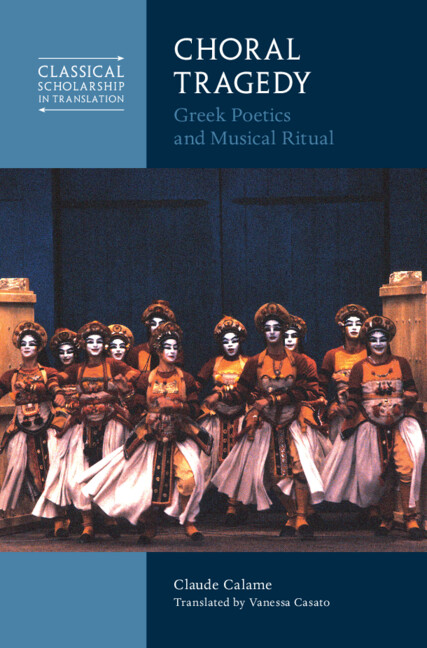Choral Tragedy
Ever since Aristotle opened the discussion on the role of the chorus in Greek tragedy, theories of the chorus have continued to proliferate and provoke debate to this day. The tragic chorus had its own story to tell; it was a collective identity, speaking within and to a collective citizen body, acting as an instrument through which stories of other times and places were dramatized into resonant heroic narratives for contemporary Athens. By including detailed case studies of three different tragedies (one each by Aeschylus, Euripides and Sophocles), Claude Calame's seminal study not only re-examines the role of the chorus in Greek tragedy, but pushes beyond this to argue for the 'polyphony' of choral performance. Here, he explores the fundamentally choral nature of the genre, and its deep connection to the cultic and ritual contexts in which tragedy was performed.
- Provides a substantial reassessment of the ancient Greek tragedy, emphasising its choral and musical nature
- Explores the tragic chorus within political, religious and cultural contexts
- The second half of the book focuses on the chorus in three prominent Greek tragedies: Aeschylus' Persae, Sophocles' Oedipus Tyrannos and Euripides' Hippolytus
Product details
May 2024Hardback
9781316516256
244 pages
235 × 159 × 16 mm
0.49kg
Available
Table of Contents
- 1. The essence of 'The Tragic'
- 2. Tragedy, cult, and ritual
- 3. Choral polyphonies and tragedy
- 4. Aeschylus' Persians: questioning choral identity
- Euripides' Hippolytus: choral song and gender
- 6. Sophocles' Oedipus Tyrannus: 'Why Should I Dance (Chorally)?'
- 7. Poets, tragic diction, and tragic fiction.


